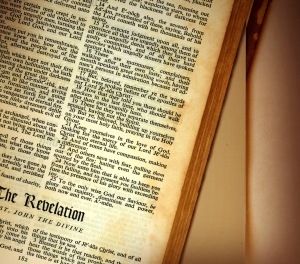
The Purpose of Revelation
The book of Revelation begins, ‘The revelation of Jesus Christ, which God gave him to show to his servants the things that must soon take place.’ The opening sentence tells us what the book is about. It’s ‘the revelation of Jesus Christ’ concerning ‘the things that must soon take place’ (Rev. 1:1 ESV).
The Greek word used here for revelation is ‘apocalypses,’ which means ‘unveiling.’ So, this is, ‘the unveiling of Jesus Christ’ in the light of ‘things that must soon take place.’ As we go on in Revelation, we will see Jesus unveiled in unique ways quite different to the Gospels. In the Gospels, we read of Christ Jesus having relinquished His right to equality with God.
However, at the end of the Gospels, Jesus declared that all authority had been given to him in heaven and on earth. Revelation comes to us from this standpoint. It’s the unveiling of the ascended, glorified Jesus Christ, in light of things that were soon going to take place.
For the Church
The term ‘servants’ used here is a reference to the believers, in other words, Jesus’ church. The word is also translated ‘bond-servants.’ This describes those who have, out of their love for Jesus, chosen to serve Him as their Lord.
Keep in mind that the word ‘soon’ is a time reference relevant to the 1st century church and not us. That said, we will see that the things that were going to soon take place then, have continued on to this day. This makes Revelation relevant to every generation of Christians.
From John the Apostle
Verse 1 goes on to say, ‘He made it known (that is, the Revelation) by sending his angel to his servant John’ (Rev. 1:1c). Essentially, God gave Jesus a revelation to give to His servants, the church. And, Jesus did this via an angel who gave it to John.
Of John it says, ‘who bore witness to the word of God and to the testimony of Jesus Christ, even to all that he saw’ (Rev. 1:2). Here the author identifies himself as John, the apostle, who had walked with Jesus and who had written his own gospel account. Or, it may be that John is indicating that he is the witness of this particular revelation of Jesus Christ. Or, it’s both.
Blessing on Doers of the Prophecy
Verse 3 continues, ‘Blessed is the one who reads aloud the words of this prophecy, and blessed are those who hear, and who keep what is written in it, for the time is near’ (Rev. 1:3). A blessing is pronounced on both the reader and hearers of the Revelation. This is because each church would only have a single copy, which would be read to the audience. Note that the blessing required keeping what was written, not merely reading or hearing it.
Also of note is that John calls this a prophecy. In the Old Testament, God addressed His people through the prophets with similar prophecies. What he said concerned their behaviour in light of the covenant’s requirements. This was corrective by nature. He also spoke of future outcomes related to their behaviour and of events that would take place regardless of their behaviour. These were predictive by nature. Also included in the prophecies were words of comfort and hope.
This is exactly what the book of Revelation does. The things that were soon to take place would be the predictive elements of this prophecy. The corrective side of this prophecy is seen in the reviewing of the behaviour of the 7 churches. And, His servants are given words of comfort throughout.
Verse 3 ends, ‘for the time is near,’ which reiterates the soonness of the events described to the original recipients.
Rob Morley
Also on YouTube at: Revelation 1v1-3
Also as a podcast at: Revelation 1v1-3
